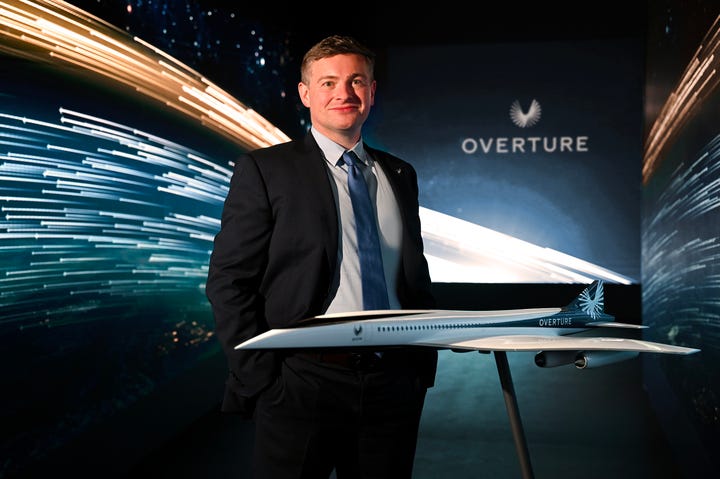Blake Scholl is re-inventing air travel by re-inventing himself
A candid interview with the founder and CEO of Boom Supersonic
What possessed Blake Scholl—a high school dropout turned software engineer turned e-commerce entrepreneur turned Groupon employee—to set himself, in 2014, the insane-sounding mission to mainstream supersonic air travel? And how did he build himself into the kind of leader who could actually execute on that mission?
These were some of the questions Blake answered for us in this recently released episode of the Founder’s Mindset podcast (produced by Entrepreneur First and co-hosted by myself and EF co-founder Alice Bentinck):



